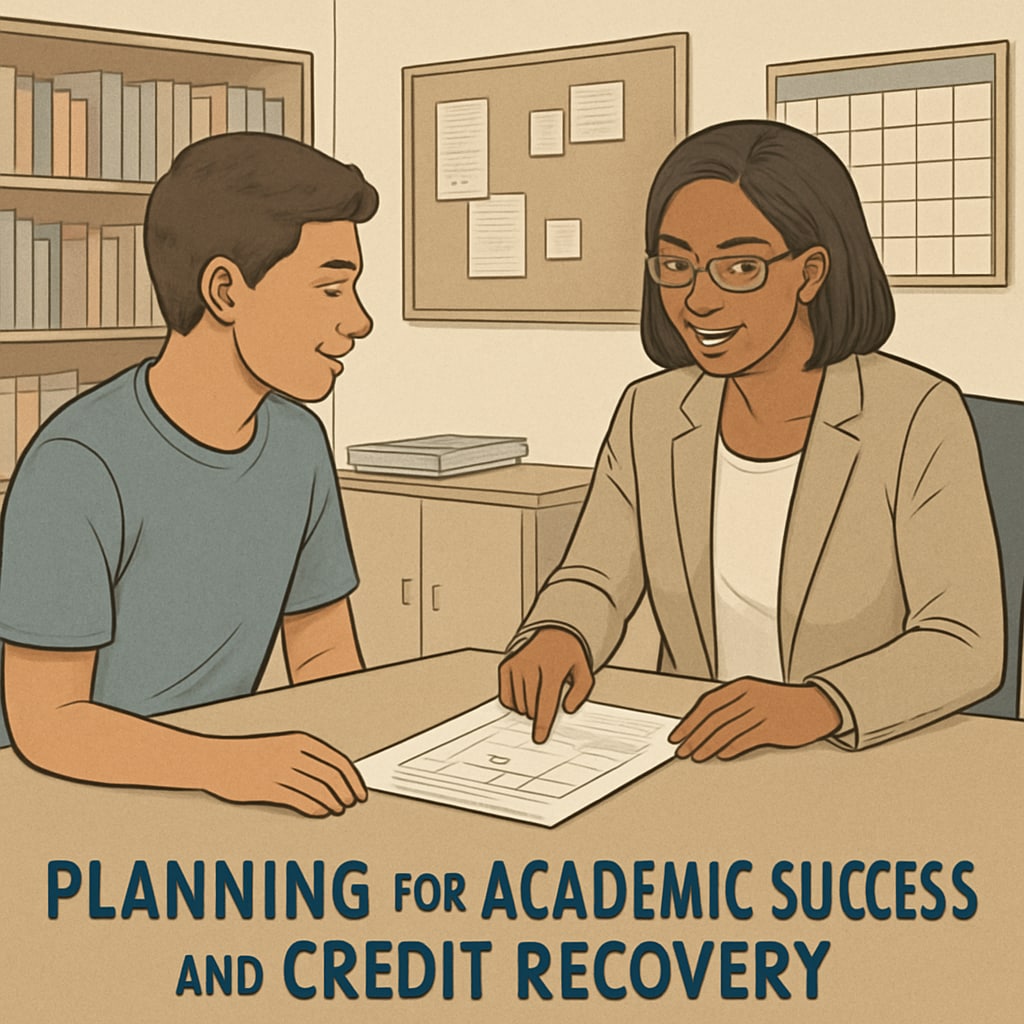High school students facing credit deficiency often feel overwhelmed, particularly when they realize the clock is ticking. However, even with only two years left, it’s possible to catch up on missing credits and graduate on time. By addressing the issue with a clear plan, utilizing diverse academic resources, and maintaining a positive mindset, students can turn their high school journey around. This article outlines proven strategies to help students rebuild their academic standing and cross the graduation stage successfully.
Understanding the Credit Deficiency Challenge
Before creating a plan to recover lost credits, it’s essential to understand the root causes of the issue. Credit deficiency can result from various factors, including missed classes, failing grades, or transferring schools with mismatched credit systems. Regardless of the reason, the key to recovery lies in assessing your situation honestly and promptly.
Start by consulting with your school counselor. They can provide a transcript review, identify missing credits, and help you determine the minimum requirements for graduation. Additionally, many schools offer credit recovery programs specifically designed for students in this situation. By understanding your unique challenges, you’ll be better equipped to create a tailored plan for success.

Practical Strategies to Recover Missing Credits
Once you’ve identified your credit shortfall, it’s time to explore practical recovery options. Here are some effective strategies to regain lost ground:
- Enroll in summer school: Summer school programs allow students to retake failed courses or earn new credits during the break. These intensive courses can help you make significant progress in a short time.
- Take online courses: Many accredited online platforms offer high school-level courses that can be completed at your own pace. These programs are ideal for students who need flexibility.
- Consider credit recovery programs: Some schools offer special credit recovery classes that focus on essential coursework, allowing students to complete requirements more efficiently.
- Maximize your regular school year: Speak with your counselor about increasing your course load by adding extra classes during the academic year.
- Dual enrollment opportunities: If available, consider enrolling in community college courses that count toward both high school and college credits.
By combining multiple strategies, you can address your credit deficiency more effectively and stay on track for graduation. For further details on credit recovery methods, you can visit resources like Education Resources on Britannica.
Staying Motivated During the Journey
Recovering from credit deficiency is not only an academic challenge but also a mental one. It’s natural to feel discouraged at times, but maintaining a positive attitude is critical. Here are some tips to keep you motivated:
- Set clear goals: Break your recovery plan into smaller, manageable milestones to track your progress and celebrate achievements along the way.
- Build a support system: Surround yourself with friends, family, and mentors who encourage you and hold you accountable.
- Develop strong study habits: Create a dedicated study schedule, minimize distractions, and focus on time management.
- Seek help when needed: Don’t hesitate to ask for assistance from teachers, tutors, or counselors if you’re struggling with specific subjects.
Remember, overcoming obstacles is part of the growth process. By staying focused and proactive, you can transform this challenge into an opportunity to build resilience and determination.

Graduating on Time: A Realistic Goal
Although the road to catching up on credits is demanding, it’s entirely achievable with the right mindset and resources. Many students have faced similar challenges and succeeded through determination and hard work. Graduation is not just about earning a diploma; it’s a testament to your ability to overcome adversity and achieve your goals.
As you work toward this milestone, remember to regularly review your progress with your counselor and adjust your plan as needed. Stay consistent, remain optimistic, and focus on the long-term rewards of your efforts. For additional motivation, explore success stories of students who overcame academic struggles on platforms like High School Success Stories on Wikipedia.
In conclusion, while credit deficiency may seem like an insurmountable obstacle, the combination of strategic planning, resource utilization, and a supportive mindset can help you graduate on time. By taking action today, you’re setting yourself up for a brighter future tomorrow.
Readability guidance: This article uses short paragraphs, clear subheadings, and actionable lists to ensure accessibility. Transition words and motivational language are incorporated to maintain engagement and flow.


